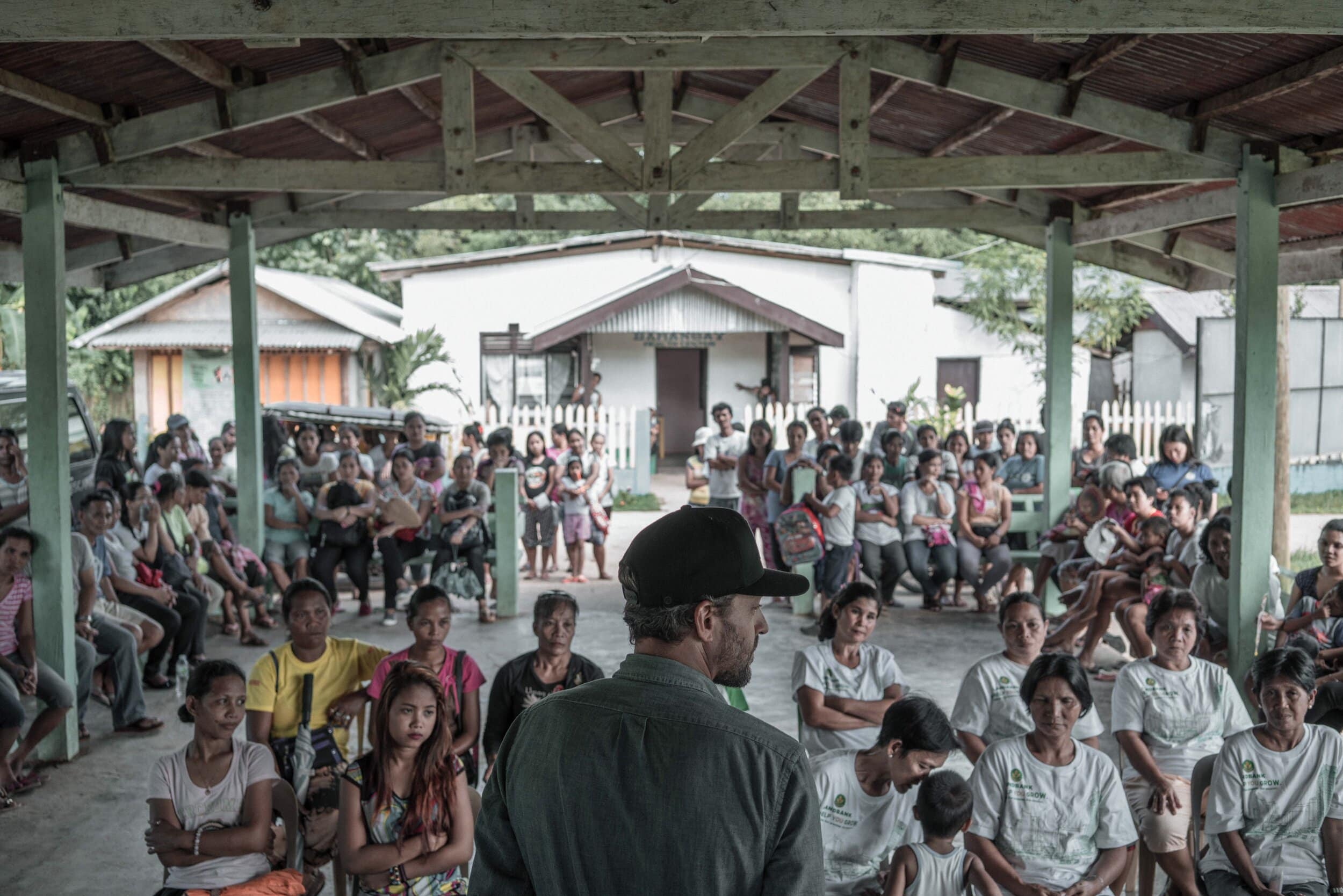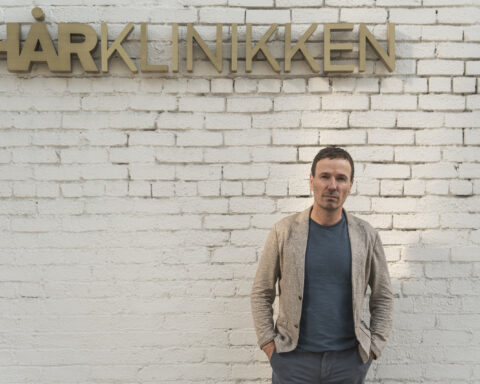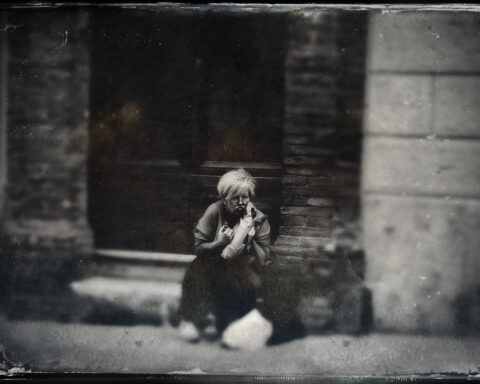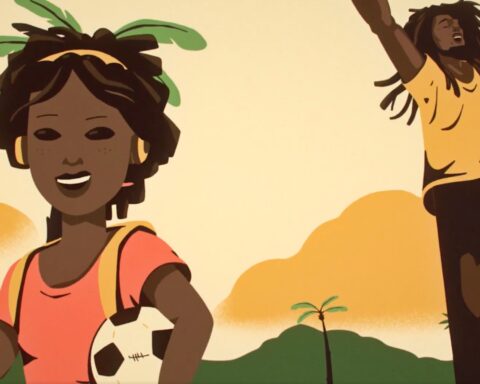Jon Rose traveled the world as one of the nation’s top-ranked pro surfers and gained plenty of accolades, exciting experiences and sponsorship from leading brands along the way.
Then as his pro career wound down, he was looking for a way to continue his globetrotting adventure — and ride some more waves — while giving a little back to the communities that he had connected with during his time as a full-time surfer.
What started as taking 10 water filtration on a surf trip to Sumatra, Indonesia, in 2009 quickly turned into launching Waves For Water, a non-profit with a mission to bring clean drinking water to those in need that has now helped four million people.
Waves For Water’s philosophy is “do what you love and help along the way.” It’s an ethos that has shaped Jon’s life and purpose, and is great advice to us all.
Here he tells Mr Feelgood how he has applied his passions and competitive edge from his pro sports career to fight for an even bigger goal.

Jon in Indonesia // 📸: W4W
How did your surfing career inspire this life of purpose that you’ve now found with Waves For Water? Because it sounds like one adventure led to another…
I think one of the best ways to describe it, which is probably not expected, is that it really all came out of selfishness. Surfing itself is a pretty self-centered sport by nature, it’s you and this relationship you have with the ocean. And it’s a limited resource, so it’s a little bit of a fight out there, and you’re always wanting more, trying to get that next wave. That doesn’t mean you’re not a good person, but it’s more self-centered than if you’re on a basketball team. I’m an only child and when my parents got divorced, I moved from Northern California down to Laguna Beach with my dad, and that’s when I started surfing. Surfing became my best friend, my everything, my greatest passion. I saw the older guys who were pros and I wanted that life, and I focused and achieved it and turned pro at 17. It’s just this amazing journey that happens when you’re very young. And what I realize now is that I was thrust into a lot of crazy situations before I even had credit cards or could rent a car. On some levels, you’re forced to mature, and on other levels, it’s enabling immaturity. You’re thrust into really heavy situations, alone on the road, and you have to make good adult decisions, and you have to learn how to navigate the world. But at the same time, you’re a kid and you don’t have anybody looking over your shoulder, so you can get into trouble. So it was this delicate dance and I think I did walk the line quite well, I definitely had f*** ups, but I also held it together and got through it, unlike a lot of my compatriots. But just becoming good at navigating the world at a very young age is such an incredible skill set to have for the rest of your life and, specifically, for the work in my next chapter with Waves for Water. What I didn’t realize is that I was actually doing civil affairs as a pro surfer. It’s a little bit different and through a different lens, but you have to navigate culture, and the intricacies and the nuances of these places. The objective is different, but I’m applying those same exact fundamentals in the work that I do now in international aid and development.

Jon in Mongolia // 📸: W4W
What was the moment you decided to dedicate yourself to Waves for Water?
It was really born out of disaster, when I got caught in a 7.6 earthquake on the Indonesian island of Sumatra in 2009. I was transitioning out of my surfing career and had the idea for the organization, not as a job, but just as, like I said, a kind of selfish excuse to be able to go back to Indonesia a couple times a year and surf. But it was also genuine in its intent to help. I thought we’d go a couple of times a year to the place that we love, surf and then help. So we went on a surf trip and I bought 10 filters with my own money and planned to implement these in a village that I knew, and call it a day. But before we got to that village, we were in this city called Padang, which is the thoroughfare for these islands, and the quake hit. We were safe, but there was death and destruction on a level I had never seen. I was just thrust into being the first responder by accident, I guess. And I just clicked into common sense mode, and realized these filters were probably more useful here than they were at the village at this point. So I just started making those types of decisions from my gut, not because I was trained, but because it seemed like the right thing to do. And these filters ended up helping thousands of people. But it was just a pet project, and then I thought, ‘What if I really tried?’ It just polarized my life and set me on this path. I came home and was dedicated to making a difference, even more so than when I wanted to be a pro surfer.
I’m interested in this dedication you have to both of your passions. What do you think makes you so driven?
I think being driven is just another word for being competitive. I have that competitive nature, to be honest. I naturally exercised that through surfing because as a kid that makes a lot of sense, you’re filled with testosterone and you just want to win. And I’ve approached the aid work with the same competitive nature. But I’m just not competing against the other organizations, I’m competing against the crisis itself. I want to win. I want to beat it, and I still have that tenacity. And I think that set us apart from early on as an organization.

Jon in Haiti // 📸: W4W
You were on the ground in Haiti after the earthquake there too, how have your experiences in these disaster zones shaped you as a man?
Sumatra was October 2009, and Haiti happened January 2010. So you’re just talking a few months. After I was thrust onto this new path in Sumatra, I got home and all I wanted to do was get back to Indonesia. So I fundraised and went straight back over there the next month. Then I came home again and had another month’s gap, and I wasn’t even registered 501c3 (as a non-profit) and didn’t have a website yet. I just had this idea and some time on the ground in a really heavy situation. Then Haiti happened and I got the opportunity to go down there with some volunteers because they had seen what I did in Indonesia. So I went the next day, the day after the quake. I thought it was going to go for two weeks and stayed for two years. Haiti is probably the single most influential place in my life. It was my testing ground, proving ground and it set the stage for me to build the organization that I wanted to build. Because Haiti is the most beautiful place and such a tough place at the same time. I was living in a tent for six months and was processing such heavy stuff day in and day out. And that period really helped me to understand who I am as a man and grounded me. As in ‘who I truly am’ and not ‘Jon Rose the pro surfer.’ Because you have your identity wrapped in something from an early age. And that really helped me break myself open and understand who I was at my core. I found vulnerable things that I didn’t know about, as well as strengths that I didn’t know about, and basically someone who really does give a s***. I think that growing up, the easier path is to take the one of not giving a s***. The easier path is to fall in line with everybody else and just be in that status quo. But I think if you can bust outside of that, which this helped me do, you realize that is truly why we’re here.

Jon in Ecuador // 📸: W4W
What are some of the specific challenges you find, and how do you overcome them, to help communities in your work with Waves for Water?
We provide access to clean drinking water for those who don’t have it, and there are many reasons that could be. It could be a failure of leadership, it could be a lack of resources, geography, a power struggle, or when working in conflict zones, people could just basically be caught in the crossfire. All sorts of different reasons. And so we come in and figure out what’s wrong and unblock it. My work is basically just problem solving. What will happen, typically, is that we will go into an area, we do a needs assessment based specifically around access to clean water. And if they don’t have water at all, we have to create a source and if they have a source of water but it’s not clean, we have to make sure that it’s safe. Then we design a program. It could be that we dig wells, it could be that we have got to do portable filtration systems for every household, or we’re going to do rainwater harvesting system in the school, or a filtration system in the school, and everyone will come fill up from the school. We may not be able to solve everything, but we can help with this one piece of missing infrastructure. I started the organization in 2009, and since then we’ve impacted an estimated four million people and we’ve established programs in 44 countries. And we have ongoing programs in about half of those. We have permanent teams in Nepal, the Philippines, Mexico, Brazil, and Haiti. We’ve got a global team of about 40 permanent people, and then we ramp up accordingly with local teams when needed.

Jon in Brazil // 📸: W4W
It’s interesting how your passions, strength and competitive nature from your sports career became such an influence in your charity work. I love the Waves for Water slogan of ‘do what you love and help along the way.’ So is there anything you could say about how other people can look at their own strengths and passions and apply them to making a difference?
I think for anybody to truly impact the world, they need to be right with themselves first. You’re not going to help anybody if you’re not in a good place. It’s one of the oldest lessons in psychology, how are you supposed to love somebody if you can’t love yourself? Go out there and follow your own passions, what is it that you love to do, and then find a way to plug purpose into that. Because if you start moving in that direction, and do what you love and what you’re good at, and then find ways to apply that in a way that’s going to help other people, that’s going to open up a pathway for you. And I believe in that type of service, way more than people coming on a trip with me and wearing matching t-shirts and lanyards.

Plugging purpose into passion. Jon in Nepal // 📸: W4W
Do you have any other projects or initiatives going on right now, or coming up, that we should know about?
There’s a new partnership that we’ve developed with Dockers, the Levi Strauss brand. We’re going to be implementing a corporate social responsibility, clean water program that’s directly impacting their supply chain in Pakistan, India, Bangladesh and Cambodia. We’re focusing on all their workers, not just while they’re at the factories, because there’s a lot of regulations and standards now that are being met while they’re at work. But what about their homes? What about their families? And what about their surrounding village? It’s a holistic approach and that’s what I’ve always pushed companies to do. And you’d be surprised that many don’t do that, they’d rather just write a check. Because it’s hard and it also exposes conditions that are not great for some of them. And you have to have a brand that’s willing to say: ‘It’s not ideal over here.’
Find out more at wavesforwater.org











